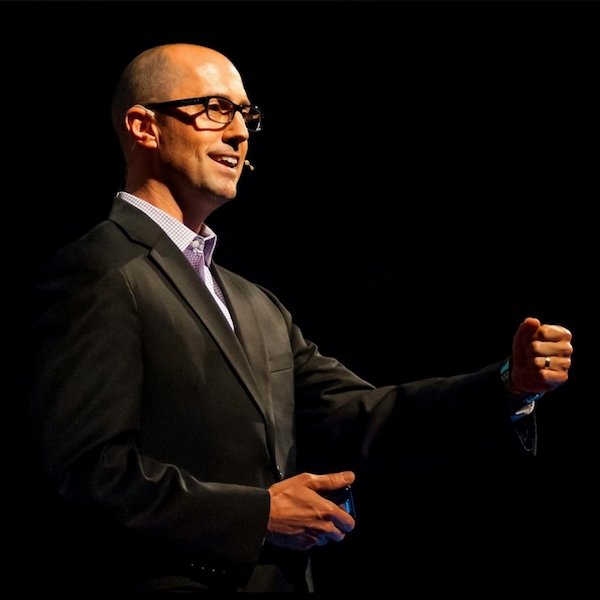How to Pay Your Own Property Taxes
We just purchased our first home.
As long as we own this home, we’re going to have to pay property taxes.
These property taxes include payments to the county, city, community college, and the local school district.
Bummer. I know.
Even worse, we live in Texas, where there is no state tax on income.
Therefore, our property tax rates are pretty high (in total, they are about 2.15% of the value of our home) to make up the difference.
How Much Are Property Taxes in Texas
This year we’re somewhat off the hook because the home has been assessed at the value of the land only, or $34,600 (that’s because they value it at the beginning of the year…and since it was just built, there was only dirt back in January).
However, next year, we’ll have to pay the 2.15% times the full value of the home. Yikes!

Property Tax Escrow Account
Most people have their mortgage company escrow or collect their property taxes every month along with the mortgage payment. This is the easy way to do it, I guess. But it’s not for me.
I’d rather be responsible for this annual payment and hold my money in an online savings account until the end of the year. This way, I can benefit from keeping my money longer, and more importantly, have more control.
I did a quick calculation using youngmoney.com’s savings calculator based on owing $6,000 in property taxes at the end of the year, and here’s what I found:
Based on monthly contributions to our savings account of $500, which would earn interest of 4.10% (compounded monthly), we would have $6,135 saved by the end of the year.
Not only will we have saved the necessary amount for making our property tax payment, but we will have earned an extra $135. Seems worth it to me, even more so because we can automate the savings with Capital One 360 and forget about it.
Update: Rates aren’t as high as they were when I first wrote this article, so be sure to check current rates on my list of the best online savings accounts to do a more accurate calculation for yourself.
Watch for the Escrow Waiver Fee
When we purchased the home, one of the closing costs that we were charged was an escrow waiver fee of $412. I was told we were charged this because we wanted to pay our own property taxes. We tried to negotiate out of this with no luck.
Therefore, to be fair, it will take us three years to start truly earning money off this method. We plan on staying in the house at least seven so, we’re all good there.
If you’re buying a house and facing this fee, consider how long it will take you to earn enough interest for this to be worth it. Another thing to consider is doing the mortgage with escrow and then waiting a year to contact the lender about removing escrow. They may not charge you a fee at that point.
How to Change to the DIY Method
If you’ve been allowing your mortgage company to escrow your taxes, and you want to switch to the do-it-yourself method, all you’d have to do is call your lender and tell them to stop. Be aware, some lenders will require you to have 20% equity before you can do this. And some may charge you a fee to do this.
Update: A Reader’s Example
Motivated by my post, Becky from FamilyandFinances.com contacted her mortgage company and got rid of her escrow account. Here’s an excerpt from Becky’s post:
“I was a little skeptical about my mortgage company, Wells Fargo, being willing to give up what was for them an easy money-maker. Nonetheless, I sent them an email asking about removing our escrow account. They sent a message back saying that we could do it if we qualified…”
Becky will actually be getting more money back than they actually owe on their taxes because the mortgage company was keeping a $500 reserve. She’s using the money to meet some of her financial goals. Way to go Becky. Thanks for sharing your story.
Next Step: How to Lower Your Property Taxes
Now that you’ve started paying your own property taxes, you may be more motivated to try to reduce them. Check out Zillow and you may be surprised by a leap in your home’s estimated value. This is great if you want to sell your house soon. Otherwise, this increase only means higher property taxes!
Even if your home hasn’t increased in value, you may want to lower your existing property taxes. Below are a few ways you might be able to bring the amount down by contesting your tax appraisal.
Correct Any Errors – Look closely at your tax appraisal, as it was probably assessed from a drive-by inspection. Are any of the measurements wrong? Believe it or not, mistakes like this are fairly common.
Sometimes, the square footage might be inflated or the appraiser might have been under the impression that you had more rooms or a finished out basement. In any case, those mistakes are easy to prove.
Look at Surrounding Home Values – If your next-door neighbors have houses that are comparable in size and their property is valued much lower, that could be grounds for the county lowering your house’s appraised value.
Conduct some thorough research on all the nearby houses in order to back up your claim. Property tax records may be available online in some states.
Contest The Value – It’s Your Right
It is your legal right to contest your house’s appraisal, though very few people do it. This is a shame, as many homeowners would have a valid case and could potentially save a lot of money each year.
If you feel you have adequate proof that your house was overvalued or that the appraiser made a mistake, visit your local assessor’s office or Website.
There, you will find the official forms you need to contest your house’s value. One caveat: there is a deadline for filing a protest, so conduct your research as soon as property values are posted each year.
Use Ownwell to Protest Your Property Taxes
Ownwell is a new tech company that will do all of your property tax negotiation with the County. They are active in six states and charge just 25% of what they save you. You don’t pay if they can’t help you. Check out our full review of Ownwell.
Does anyone else use this method? Is there a way to earn even more interest? Peer lending? Tell me how you are handling your property taxes.







Not always true about the mortgage company directly receiving the bill.We have Wells Fargo and receive our property tax bill every year.Then we have to forward it to them.
@Ann,
Are you speaking of personal property taxes or real estate taxes? If your mortgage company is holding escrow deposits in an account for you, then you would have never even recieved a bill for real estate taxes. The bill would have went directly to your mortgator.
Don’t forget! That $412 is considered tax deductible for the year of the purchase! Doesn’t recoup your whole $412 on your 1040, but every little bit helps!
Ann,
You should definitely call up your mortgage co and ask why they haven’t paid your property taxes with your escrow. That’s why you pay money into the escrow…so they will have the money to pay your taxes.
Without knowing your full details it’s hard to provide a complete answer. Since I’ve never paid into escrow (I save for property taxes myself), I don’t really know how the mortgage co. pays them. I’m sure it varies from co to co.
I would suggest calling your mortgage co and discussing it. Good luck.
I have about $4000 in my escrow account and recently received and paid my property tax of $2000+ myself, upon receiving the bill in the mail. Was this what the escrow balance is for? And if so, how does the mortgage company pay those bills? First time homebuyer…thanks!
@Aaron – That sounds like an awful lot of hoops to jump through. I wonder if it’s easier once you have 20% equity in your home?
I have Citi Mortgage and they make you jump through quite a few hoops in order to remove escrow. you must of had your loan for 1 year in perfect standing or no late payments and escrow balance must be + or at a zero balance and taxes can not be due 60 days prior to removing escrow. and 80% or less loan to value. so what i have to do is go to the county and pay 6 months of property taxes and send proof to citi bank and then they send a letter that i have to sign and send back and then they would take it off. for us they had an extra 2,000 after taxes and insurance floating in our escrow…
@Mike – Wow. That’s crazy. See, even the mortgage company employees know it’s a better deal for ya. Good luck staying on top of it.
I’m a little late getting into this thread, but I recently got out of my Wells Fargo escrow account. I had sent them an email through my Wells Fargo account asking if it was possible to get out of the escrow program. First thing next morning I get an email back from them saying that my escrow account had been closed and I would need to contact my tax authority and insurance company to make arrangements to pay for them myself… I was just asking the question! Oh well, guess it was for the better anyway.
@Becky – That’s awesome! Thanks for sharing and yes, I’d love to hear your followup story. Let me know when you do and I’ll post a link to yours.
Thanks so much for this post! I was thinking about trying to refinance to get rid of the escrow account, but your post made me decide to try to email our mortgage company, Wells Fargo, first.
Wells Fargo sent us a letter in the mail yesterday saying that if we call them, they will remove the escrow account. Woohoo!!!
I plan on doing a blog post about it later this month and I’ll be sure to link back to this post as my inspiration 🙂
I don’t know about Texas but in my area the property tax is paid twice a year. Half is due in April, the other half in October. In that case, the interest earned is about $60 at the end of the year. Put a 25% federal income tax on it, it goes down to $45. If you had to pay $412 up front to earn $45 a year, you should count the lost interest on that $412 too.
@ Anne – Thanks for pointing those two things out. Foolish of me not to include a point about taxes. For me, watching my money grow and making one payment aren’t much of a hassle though. That being the case, I think I’ll still take my chances with the DIY method. Thanks for your comment.
@ OurDebtBlog – Please keep us updated on what you decide to do. You’re right, I see that my taxes can be paid via cc as well. That may balance out the taxes that Anne mentioned. Thanks!
Mine is Wells Fargo, I’m going to call them tomorrow and see if we can stop the ESCROW crap, I would rather save and pay myselft. You could also put that on a credit card and get a free meal out of it!
The interest on your savings account is income and is thus taxable to you. That means you’re really earning about $100 in interest after taxes, and it’ll take more like four years to make up the “loan discount fee.” Additionally, you have the hassle of having to pay your tax bills yourself.
You can get another advantage if your standard deduction is just a little higher than what you could get if you itemized and if your taxes or insurance are due soon after the first of the year.
What you can do is pay it after the first of the year (but before the deadline) one year and before the first of the year the next year. In that second year, you can itemize your deductions and have a lower tax bill because you’ve paid twice as much in taxes or insurance. Then next year, you’re waiting until after the first again, so you’ll go with the standard deduction.
**
Note, this is dangerous for people who would be tempted to pull money out of that account for something else.
We must be neighbors…I am in the exact situation. Partial tax bill for this year, taking on the full bill next year. I just called my mortgage co, county appraiser, and insurance carrier and made all the changes over the phone. Roughly 30 minutes to do it all.
@ Two Nickels – Thanks for sharing your similar story. I’m curious who’s your mortgage co.? I wonder if all companies will let you do this without paying a fee. Did I get ripped of for paying this extra fee during closing?
@ Nick – Yeah, it will take three years to make up the true dollar difference of the closing cost vs the interest earned. Still worth it in my opinion because I’ll be there longer than that and I get to have control over my payments. I here stories all the time of over under collection of prop taxes. I like having the control.
So you say you will earn 135$ (that is if the APR stay the same)yet you have to pay 412$ fee… for the ability of…!!!, I don’t see the logic
Let me read it ones more.
@ SingleGuyMoney – Thanks for pointing out that the mortgage company often over or under collects.
Please let me know what your mortgage company says, and who you’re with if you don’t mind sharing. I’d be interested to know if I should have waited to do my own escrow after close to avoid the extra closing fee.
I just sent an email to my mortgage company asking them what the process is for me to handle my own escrow. I am still waiting for a reply. They take out way too much money and I now have over $1k in my escrow account after all the taxes and insurance have been paid. I know I will get this money back but this money could be working for me instead of them.
Bankrate.com has an excellent write up on this issue. Check it out @ http://www.bankrate.com/brm/news/mtg/20010419a.asp